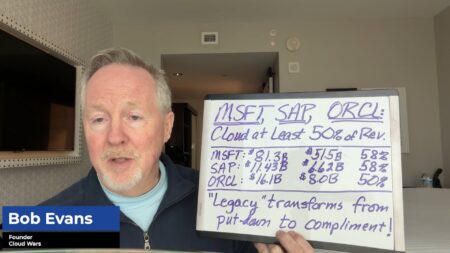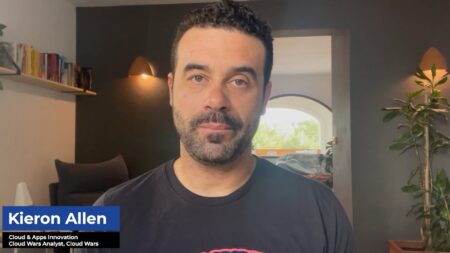For all of Microsoft CEO Satya Nadella’s brilliant gambits in transforming his company into the world’s pre-eminent tech vendor, perhaps none will match the impact of his decisions to become a global community powerhouse via the acquisitions of LinkedIn two years ago and GitHub last week.
In snatching up LinkedIn on June 13, 2018 for $26.2 billion, Microsoft accomplished the following:
- took ownership of a site that now has more than 562 million members in 200 countries;
- gained a platform to greatly enrich its capabilities in the huge CRM market, which I describe in How Microsoft Is Using LinkedIn To Take On Salesforce.com And Transform The Science Of Sales;
- enhanced its capabilities to identify in real time high-impact trends in employment, careers, markets and business; and
- further transformed itself from a company that developed and sold code to one that engages deeply and personally in communities that shape people’s lives and careers.
And last week’s $7.5-billion acquisition of developer powerhouse GitHub further extends Microsoft’s status as the world’s #1 cloud-computing vendorwhile also equipping it with connections and insights to remain at the forefront of the world’s move to developer-powered digital lifestyles, digital businesses, and a digital global economy.
Before going into some detail on the strategy behind the GitHub acquisition, look at how Nadella recently described the huge impact LinkedIn is havingfor not just “every member of the global workforce” but also for Microsoft itself, as LinkedIn revenue jumped 37% year over year.
“From the start, we recognized the opportunity for LinkedIn and Microsoft to combine forces to create economic opportunity for every member of the global workforce and enable professionals to be more productive and successful,” Nadella said during the company’s Q3 earnings call in late April.
“Our integration model has enabled LinkedIn to accelerate growth while retaining its member-first ethos…. We saw record levels of engagement again this quarter with sessions growth of more than 30 percent year over year driven by innovation across the platform. This increased engagement is driving strong demand for sponsored content and marketing solutions and record levels of job postings and job visitors again this quarter in Talent Solutions.”
And in Nadella’s recent discussion of the GitHub deal, you’ll hear echoes of how Microsoft’s move into massive communities is having and will continue to have broad and deep repercussions across multiple parts of the business.
“In all walks of life, we see the power of communities, and this is true for software development and developers,” Nadella said in prepared remarksmade on June 4 in announcing the GitHub acquisition.
These additional thoughts from Nadella on the surging contributions and impact of developers in that digital world, and on the significance of the GitHub acquisition, offer a powerful glimpse into not only why Microsoft was so eager to acquire GitHub but also how Nadella is remaking his company for pre-eminence in the global digital economy:
- “As every industry is being impacted by technology from precision medicine to precision agriculture, from personalized education to personalized banking, the developer community will only grow in numbers and importance,” Nadella said. (If you think developers are important now, just watch as the digital economy takes hold and they become the brains behind every facet of our lives.)
- “The era of the intelligent cloud and the intelligent edge is upon us. Computing is becoming embedded in the world with every part of our daily life and work and every aspect of our society and economy being transformed by digital technology. And developers are the builders of this new era, writing the world’s code.” (And while Amazon has to love that choice of words by Nadella—a clear echo of the “Build On” message from Amazon’s TV-ad campaign from several months ago—I suspect some of Amazon’s cloud leaders have recently had some unpleasant conversations with Jeff Bezos about why it was Microsoft and not Amazon that snatched up GitHub.)
- “According to LinkedIn data, software engineering roles in industries outside of tech such as retail, healthcare, and energy are seeing double-digit growth year over year, 25 percent faster than the growth of developer roles in the tech industry itself.” (Note how the source of that data—LinkedIn—is becoming not just a professional-networking site but a source of incredibly deep and rich data about employment and careers.)
- “In short, developers will be at the center of solving the world’s most pressing challenges. However, the real power comes when every developer can create together, collaborate, share code, and build on each other’s work.”
And while acquisitions of this type always cause some concerns about whether the target will be able to retain its original mission and culture and ethos, GitHub CEO and cofounder Chris Wanstrath indicated that Microsoft’s recent conversion under Nadella to open-source champion was more than enough to convince him that GitHub would be able to reach its next level of capability as part of the Microsoft empire.
“Through every step of our growth, we’ve been obsessed with building a product for the people using it,” Wanstrath said in the transcript of the announcement.
“As we’ve gotten to know the team at Microsoft over the past few years through partnerships, collaborating on open source, and working together to improve Git, we’ve learned that they agree.
“Their work in particular on open source has been inspiring,” Wanstrath said.
“In record time, they’ve gone from dabbling to full-on embracing the community, releasing .NET as open source, developing VS Code in the open, and using Git internally are just a few things they’ve done that helped us decide Microsoft is the right home and the right future for GitHub.”
And just what will that future look like? Nadella outlined his three top priorities for how the deal will play out, placing particular emphasis on the need for GitHub to remain open to all developers and all of their preferred tools and technologies.
“First, we will empower developers at every stage of their development life cycle from ideation to collaboration to deployment to the cloud and to the edge,” Nadella said. “Going forward, GitHub will remain an open platform which any developer can plug into and extend. Developers will continue to be able to use the programming languages, tools, and operating systems of their choice for their projects, and will still be able to deploy their code to any cloud and any device.”
That all sounds perfectly neat and clean, and extends Microsoft’s recent embrace of open source that GitHub cofounder Wanstrath outlined above.
But hey—nobody shells out $7.5 billion and expects nothing in return, so Nadella’s two additional points about the deal reveal how he expects Microsoft to be able to benefit from its new business unit.
“Second, we will accelerate enterprise developers’ use of GitHub with our direct sales and partner channels, and access to Microsoft’s global cloud infrastructure and services.
“Finally, we’ll bring Microsoft developer tools and services to new audiences.”
So first LinkedIn and now GitHub become part of Microsoft’s extension into the world of communities.
Who’s next?
*******************
RECOMMENDED READING FROM CLOUD WARS:
The World’s Top 5 Cloud-Computing Suppliers: #1 Microsoft, #2 Amazon, #3 Salesforce, #4 SAP, #5 IBM
Amazon Versus Oracle: The Battle for Cloud Database Leadership
As Amazon Battles with Retailers, Microsoft Leads Them into the Cloud
Why Microsoft Is #1 in the Cloud: 10 Key Insights
SAP’s Stunning Transformation: Qualtrics Already “Crown Jewel of Company”
Watch Out, Microsoft and Amazon: Google Cloud CEO Thomas Kurian Plans To Be #1
The Coming Hybrid Wave: Where Do Microsoft, IBM and Amazon Stand? (Part 1 of 2)
Oracle, SAP and Workday Driving Red-Hot Cloud ERP Growth Into 2019
*********************
Subscribe to the Cloud Wars Newsletter for twice-monthly in-depth analysis of the major cloud vendors from the perspective of business customers. It’s free, it’s exclusive, and it’s great!








